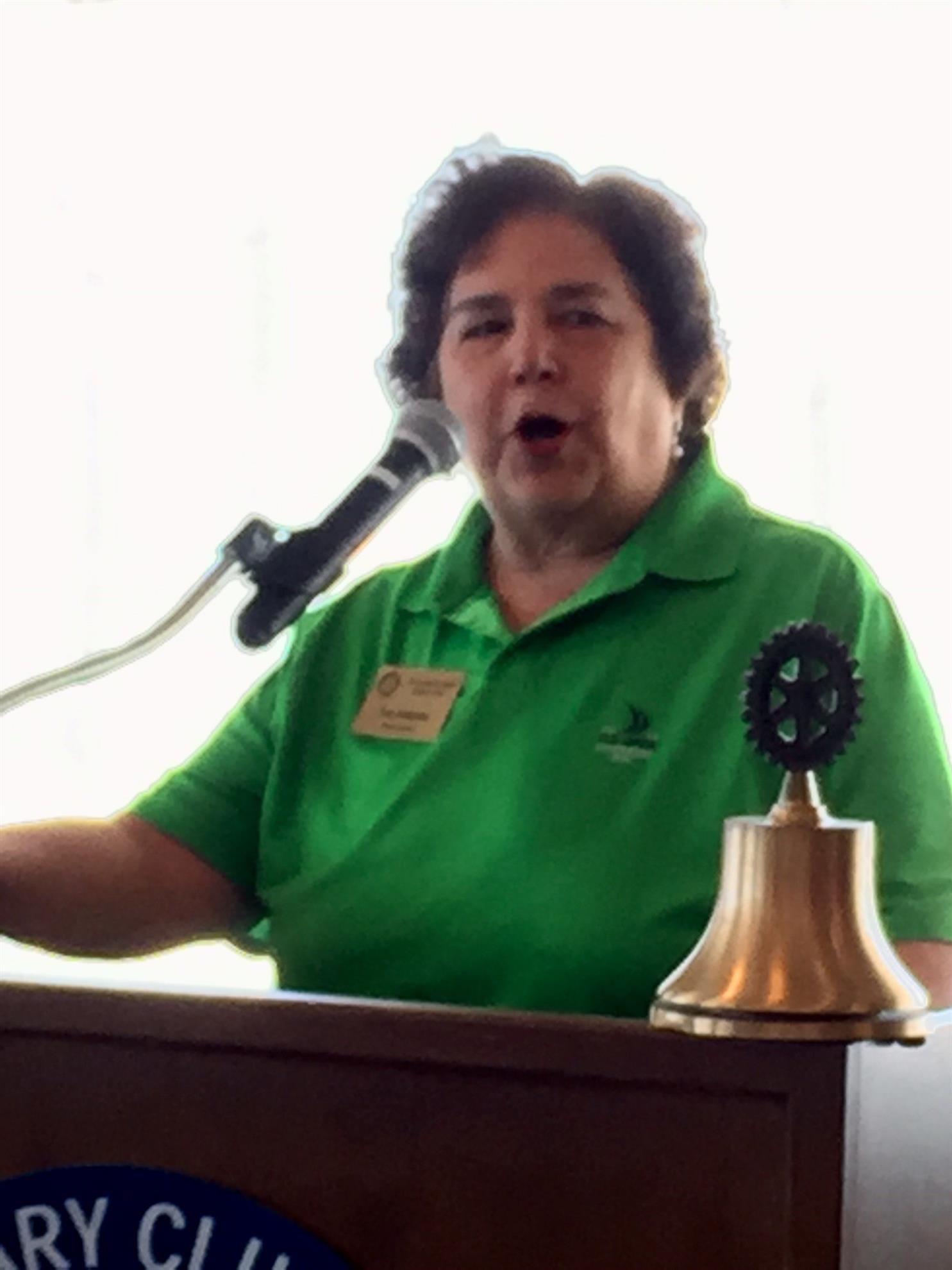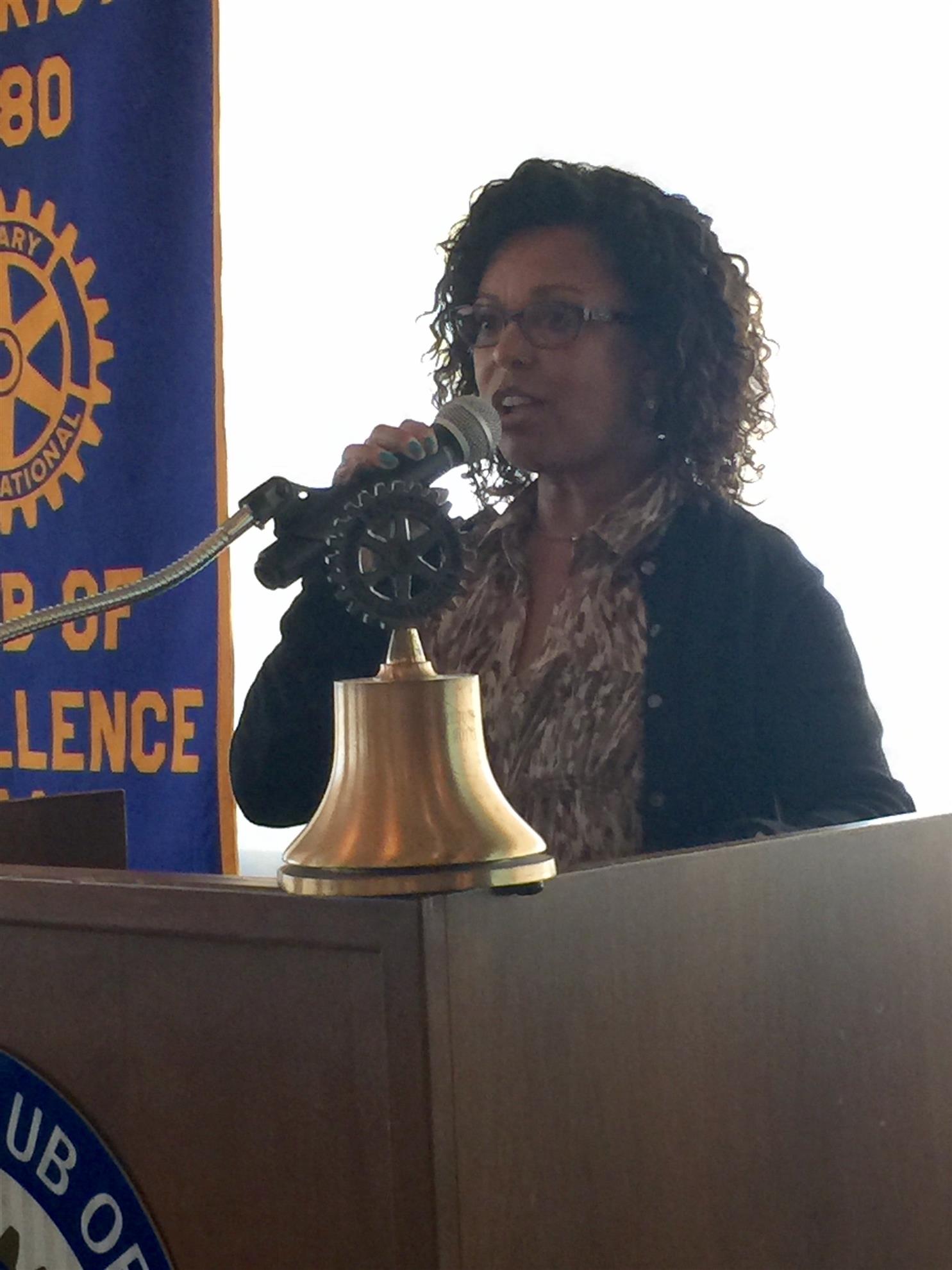Rotary Meeting May 3, 2017
Dental screenings and mental health counseling
.jpg) The Rotary Club of Redondo Beach is proud to do our part in improving the health and wellbeing of our community. This year, the Club presented a check for $4,500 to go toward dental screening and mental health counseling. Redondo Beach Rotarian Dr. Larry Hashimoto is one of the most active supporters of this program, donating his time and professional talents to giving free dental screenings.
The Rotary Club of Redondo Beach is proud to do our part in improving the health and wellbeing of our community. This year, the Club presented a check for $4,500 to go toward dental screening and mental health counseling. Redondo Beach Rotarian Dr. Larry Hashimoto is one of the most active supporters of this program, donating his time and professional talents to giving free dental screenings.Sue Johnson – Redondo Beach Police Department “Ride Along”
 Each year, the Redondo Beach Police Department donates a “Ride Along” in a squad car with an officer to our annual silent auction Casino Night fundraiser. This year, Redondo Beach Rotarian Sue Johnson placed the winning bid.
Each year, the Redondo Beach Police Department donates a “Ride Along” in a squad car with an officer to our annual silent auction Casino Night fundraiser. This year, Redondo Beach Rotarian Sue Johnson placed the winning bid.“It was fascinating,” Sue told the Club, “I’d really recommend doing this if you ever have the opportunity!”
Sue donned a balistic vest and rode along for a full six hours with officer Kyle and German shepherd canine officer Ammo. A typical day for a Redondo Beach police officer is never typical. On this particular day, Sue saw first hand how Kyle and Ammo addressed a number of different incidents, including indecent exposure, DUI and assault. On one call, a man who was suspected of assault on a women became especially belligerent and four officers were required to take the man into custody.
Sue saw first hand to what degree Amo is a highly skilled and trusted partner. Every second that Kyle was away from the squad car, Amo was trained on him, ready to spring instantly into action.
Thank you, Sue, for sharing your day’s adventures with us and thank you, Redondo Beach Police Department for the work you do keeping our community safe.
Raunda Frank and Heather Longride – NCADD
 The National Council on Alcoholism and Drug Dependence, Inc. (NCADD) provides “education, information, help and hope to the public.” It is considered the world’s leading advocacy group to address alcoholism and drug dependence, with particular emphasis on prevention. Begun in 1944, NCADD has worked tirelessly to raise awareness about drug use and abuse in the United States and increasingly abroad.
The National Council on Alcoholism and Drug Dependence, Inc. (NCADD) provides “education, information, help and hope to the public.” It is considered the world’s leading advocacy group to address alcoholism and drug dependence, with particular emphasis on prevention. Begun in 1944, NCADD has worked tirelessly to raise awareness about drug use and abuse in the United States and increasingly abroad.The NCADD maintains a chapter in the South Bay and serves of the communities of Redondo Beach, Manhattan Beach and Hermosa Beach. Raunda Frank and Heather Longride spoke to the Club about some of the work they do. Much of the work of NCADD focuses on prevention among children and teens. Prevention of drug and alcohol abuse is often a function of ease of access. 75% of teens surveyed in the South Bay admit that getting access to alcohol is very easy. 41% admit to consuming alcohol regularly. About 40% of teens admit that their access alcohol through their parents. A quarter of South Bay teens admit to drinking alcohol at parties. These numbers are concerning, especially when paired with the statistic that close to half of teens, who drink before age 14 will develop an alcohol dependency. Recently, students snuck vodka in a water bottle into a Palos Verdes middle school; several children were rushed that day to the hospital and treated for alcohol poisoning. These children were just 13 years old.
Beginning this year, The State of California has decriminalized marijuana. It is currently legal for Californians to maintain up to six plants in their homes for personal use. In addition, medical marijuana is much more widely available and medical marijuana cards are relatively easy to obtain. Many benefits of marijuana use have been thoroughly researched and thus proven, however, more widespread access has lead to more underage use and abuse. Today’s weed is not your daddy’s weed: In 1982, THC in marijuana, the chemical which produces the high, averaged about 4%. Today, your typical joint will have three times that amount. Medical-grade marijuana will have 20-30% THC. The lasting neurocognitive effects of these higher concentrations of the drug on developing teen minds is not completely understood. Further working at cross purposes of preventing teen and childhood marijuana use are the many marijuana products now commercially available, including pot cookies, candies and soda pops. To a child, tequila would be an acquired taste. But gummy bears and chocolate bars? Marijuana sweets are presenting an especially difficult challenge to parents and prevention educators.
In the South Bay, NCADD sponsors the Prevention Community Council (PCC), which organizes many outreach and education events throughout the year. PCC trains area restaurant and bar wait staff on how check ID’s, the laws surrounding an establishment’s liability when serving patrons alcohol and how and when to refuse to serve alcohol to a customer. PCC also sponsors educational workshops for parents to inform parents of current laws and their liabilities when teens are drinking in their homes. PCC also organizes so-called “reality parties”, wherein teenage volunteers act out a typical teen party where alcohol would be served, drinking games played and binge drinking encouraged.
Good drug and alcohol abuse prevention among our young people involves parents, schools, law enforcement, the kids themselves, as well as highly committed organizations such as NCADD. We want to thank NCADD for their part in keeping our young people healthy and safe.
